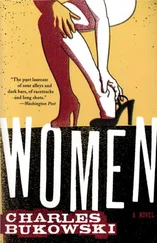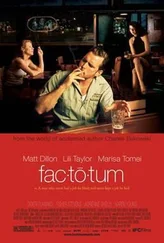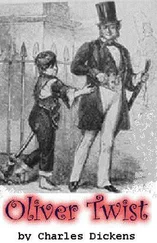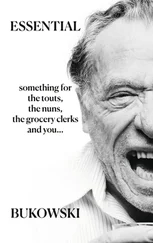Two in the morning. Alice and the child long asleep. Oliver imagined how it could go — the dilemma of simultaneously caring for what he imagined as Alice in emergency, spasming, in pain, body panicked and out of control, plus an infant. Game theory demanded Oliver plan for the worst. Meaning Doe awakening, sensing the chaos, then bawling her little head off. Similarly assume Tilda would be uptown, doing whatever the hell she did for rent, maybe plying some poor schlub with alcohol so she could drag him back to her lair. Figure Jonathan and his wife having complicated plans and important arrangements from which all kinds of disentangling would be required. Meaning Oliver had to plan for a good half an hour spent handling this crisis alone. Alice wouldn’t be able to wait for the cavalry, would need help immediately — so Oliver was going to make sure each desktop had an instruction file, just in case the Brow might be at a terminal. Oliver was going to ask anyone who’d be around the apartment semiregularly to familiarize themselves with the instructions (they wouldn’t; still he’d ask). He’d already been assured that select waiters at Florent had been through their share of AIDS tragedies and were more than capable in a crisis situation, Florent would even come himself if need be. Worst-case scenario, something happens at three in the morning, one of the transvestite hookers from the corner could take Doe into the bedroom; Oliver could put him or her on a retainer, have the pre-op hang with the baby, just watching, keeping Doe mollified and oblivious while paramedics attended to Alice in the main room. Shit might get stolen, but so be it; Oliver had to make sure the child did not scar from the sight of Mommy flailing and foaming, let alone the paramedics strapping Mommy onto a stretcher, carrying her away.
The apartment’s large main area was dormant, just his desk lamp and screen light providing illumination. Printing out his list of emergency info from a gray laptop, Oliver taped a copy to the inside of the computer desk’s top right drawer, so it would be easily available to him, but out of Alice’s purview — yet another thing she didn’t need to know about. When he finished he reclined in his rolling chair, staring out into nothing. It felt to him as if he were a little boy rising onto his tiptoes, reaching toward a shelf, his fingertips barely touching something, feeling smooth curves. That unseen object remained too large for him to fully comprehend.
It was fear. That their daughter would grow up without ever knowing her mother, that this void would dominate her life; that she wouldn’t have a choice but to idealize her absent mother, and would blame her mother for her absence, and would curse her, as well as every woman her dad brought home (family friends who carved time in their schedules to try to assuage how sorry they felt; well-meaning girlfriends wanting to do good; all other sorts of potential stepmothers); she would curse her father; curse the world and, most of all, herself, herself, herself; that lonely teen years would be spent holed up in a corner with Mom’s journals, reconstructing her own version of who this woman was — these were the broad strokes. And there were specifics as well. Even if he could not fully grasp them all, the imagining was endless.
—
The four-year-old ambles out of her prekindergarten classroom and into the hallway, where she sees all those different women, every one of them expectant, joyous, opening her arms. Every day she does this, ambles out of her class, into that hallway. Every day she watches mommies hug all the other children. Caribbean nannies are gathering kids, too, but his little girl sees those mommies, with their packages of fresh fruit, their baggies of newly steamed broccoli, their applesauce pouches and yogurt containers and Goldfish crackers. Her daddy is late again, out of breath, trying to figure out which of his coat pockets has that paltry-ass cheese stick.
He is up in the small hours, practicing on her Barbie, refining his technique for French twist braids. His thumbnails are slathered with pink sparkle polish, the result of an hour before bedtime when he needed to keep her occupied. His hands fumble, his manual dexterity light-years away from that of women who’ve been braiding hair since they were six. The next morning: he is woozy, but concentrating, making sure to follow each comb stroke so his daughter’s hair falls according to the swirling part along the top, pulling and struggling to separate clumped ends, tangled strands. Fumbling with hairpins, Oliver gets surly, ordering: Sit still already . On cue, the girl pulls away, cries. Yet another school photo where stray thin hairs form around her head a backlit halo.
To honor his dead wife’s wishes he won’t let television raise his child, meaning that unless Oliver’s paying for a sitter, cooking dinner’s not a real option, at least not until Doe’s like six or seven. The real-world translation: half-opened take-out containers, a fridge that wafts with strange smells, a kitchen sink piling with used dishes.
Relying on one or two distressingly attractive, semicompetent young women fresh out of art school who earn extra spending money through sitter work. Learning to have more sitters. To have a list of backups. To juggle their schedules. The girls are always looking for a real job, counting down the days to some internship, nurturing a relationship with his daughter but, as the job continues, showing up later and later. Doe wide-eyed, listening as Oliver explains still another departure; Doe’s eyes not as wide, the child becoming accustomed to this whole attachment-abandonment cycle: you trust people, you believe in them, they leave, you have no control.
Another tantrum; constantly determined to show that her will is greater than his; overturning her chocolate milk. From the other booths around him come the stares, men who’ve brought their young children to this diner at nine o’clock on a Saturday morning — hoping to kill some clock this long weekend day. Faces entering the first pangs of middle age. As they watch Doe’s meltdown, each man shows a certain sympathy, but also betrays something else. Coming from a place deeper than sympathy: a terror that is pure, whole.
But a learning curve can also work for adults, and Oliver moves from the overmatched griever, lashing back at the other diners with a look of vehemence ( What do you want? I had this thrust upon me. That’s a different animal from your divorce ). He ferments into the panicky uptight dad who jerks across the table and lifts his daughter too hard, scaring her, What did you do now? Look at this. Jesus, Doe. He becomes the beaten man with his face in his hands, listening to his girl cry and wishing so hard that he could disappear. And then he survives, evolves: lifting his daughter out of the path of the pool of milk so her clothes don’t get more muddied; pulling more napkins from the holder, telling her it is fine, and wiping away the mess.
And that name, yet again, always that name. The child falls and cries and says it. She doesn’t get the desired amount of sprinkles on her donut and blubbers , I want Mama . She doesn’t want to clean up her toys, Mama. Wants to stay in the playground longer, I want Mama. Wants to play yet another imaginative game with her classmates where they are the brothers and sisters, and who is she? Mommy Mommy.
And then he’s survived until that sweet soft-ice-cream-pleasant and best time of the night, when they are in bed together and she is comfy under the comforter and flirty and loving toward him, gazing at him with what seems unabated love, paying attention to stories and pulling on his ear with affection. He’s read two full stories and she’s rubbing at her eyes with her little hands and it is time for lights-out, that part of the evening where he knows it will start.
Читать дальше











